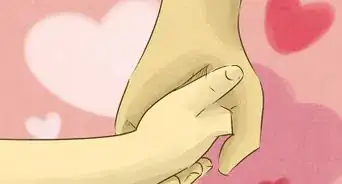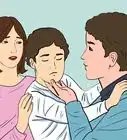This article was co-authored by Laura Marusinec, MD. Dr. Marusinec is a board certified Pediatrician at the Children's Hospital of Wisconsin, where she is on the Clinical Practice Council. She received her M.D. from the Medical College of Wisconsin School of Medicine in 1995 and completed her residency at the Medical College of Wisconsin in Pediatrics in 1998. She is a member of the American Medical Writers Association and the Society for Pediatric Urgent Care.
wikiHow marks an article as reader-approved once it receives enough positive feedback. In this case, 84% of readers who voted found the article helpful, earning it our reader-approved status.
This article has been viewed 600,101 times.
It can be really scary if you think a child you know is being abused. Recognizing abuse among infants and toddlers can be especially difficult because they may be unable or reluctant to talk about their situation. Since they are active and developing, distinguishing between what is normal and what suggests abuse can also be challenging. Marked changes in behavior and certain emotional signs, however, can sometimes indicate abuse. Physical signs may also be present, but not always. If you suspect a child is the victim of abuse, take action and contact authorities.
Steps
Noticing Behavioral Signs
-
1Watch for sudden changes in behavior. It’s common for an abused child to suddenly act differently. Children who are normally active and outgoing may become withdrawn. Normally gentle children may become aggressive. Any affected child may suddenly seem anxious.[1]
- For example, you might notice that your neighbor's child used to be outgoing and full of life, but now seems scared to go outside or play.
- Even infants and toddlers can show changes in behavior. For example, they may become overly fussy without any obviously explainable cause.
-
2Take note if the child suddenly falls back on behaviors they have outgrown. Abuse can make children feel insecure, and to begin acting like they are younger than their age. For example, a potty trained child may begin to wet the bed again, or a toddler who no longer sucks their thumb may begin to again.[2]Advertisement
-
3Notice a child that seems overly compliant or overly demanding. Normally, infants and toddlers are both interested in pleasing adults and testing boundaries. Children who have been abused, however, may go to one extreme or another. They may only want to do what an adult says, or they may be consistently defiant or demanding.[3]
- For example, if you are watching a child at daycare and they throw a tantrum at every activity or every time an adult asks them to do something, this can be a reason to worry.
-
4Look for eating changes. It’s natural for infants and toddlers to sometimes be picky eaters. However, if a child seems to have significantly changed how they eat without a clear cause (like experiencing a growth spurt, or being sick), this can be a reason to worry about the child. They may also gain or lose lots of weight in a relatively short time.[4]
- If you are babysitting a child who has been abused, for example, you may notice that they have grown very thin and shows no interest in eating.
-
5Pay attention if the child has problems sleeping. Infants who normally sleep well may begin to wake throughout the night. Toddlers may talk about having nightmares. If you haven’t observed the child’s sleep, you might also see other signs. For instance, they may seem unusually tired or weak because they are not sleeping well.
-
6Keep track of any changes at school or daycare. Infants and toddlers suffering abuse may have poor attendance at daycare or preschool, when there is no clear cause (like illness or a vacation). They may also begin to behave differently at daycare or school.[5]
- When a child returns to daycare or preschool after a long absence, ask the parent or caregiver why the child was out. Take note if they seem reluctant to talk about it, or to lie about it, like "We went to visit the grandparents on the other side of the country" when you know the grandparents actually live in the same city.
- It can be really scary to confront the parent or caregiver, but you should at least ask about the absence for the child's sake.
Watching for Emotional Signs
-
1Take note if the child seems afraid of home or caregivers. An infant or toddler who has been abused by someone at home may not want to go home. They may avoid parents or other caregivers--for instance, by forcefully clinging to a teacher at preschool when it is time to go home (or vice versa).[6]
- Mild separation anxiety is also common among infants and toddlers, and does not necessarily indicate abuse.
- Keep in mind that just because a child seems afraid of a caregiver, it does not mean that that caregiver is abusing the child. If there is a problem, someone else at home may be the cause.
- If you are taking care of children as a babysitter, daycare worker, etc., talk to the child if they seem afraid of going home. Thinking about potential abuse can make you feel very emotional, but remember you are trying to help the child one way or another.
-
2Recognize when the child is obsessed with trauma. Children who have been abused are unlikely to understand what has happened. As a result, they may talk a lot about violent or traumatic events, or about hurting themselves or others.
- For example, if you are babysitting a child who constantly tells you she is afraid of being burned by a parent, that can be a real cause for concern.
-
3Be vigilant if the child has early sexual awareness or knowledge. Sexual development is a long process. Certain stages begin even in young children. However, if a toddler seems to have advanced knowledge of sex, or to talk about it frequently, this can be a red flag suggesting sexual abuse.[7]
- Keep in mind that some curiosity about sexual matters (like the differences between boys and girls) is natural at some stages.
- If you notice something like one of your child's friends play acting sexual acts in graphic detail, however, this is unusual and should be investigated.
Observing Physical Signs
-
1Recognize any unusual injuries. Infants and toddlers are busy exploring their world, and it’s completely normal for them to get a scratch or bruise in the process. However, if a child has numerous or severe injuries, or wounds that do not look like normal bumps and scratches, these can be a sign of abuse.
- You may see things like marks, bites, scratches, or burns that appear to have been made with an object.
- You may also see injuries that are unusual for infants or toddlers, like black eyes.
- You may see fading bruises or wounds after an absence from daycare or preschool.
- If you ask the parent or caregiver about infant's or toddler's injuries, they may offer an excuse that seems fake or unlikely, such as "Tim got that burn because he built a campfire in the backyard."
- Keep in mind that some forms of physical discipline (mild spanking, for instance) is not necessarily abuse.[8]
-
2Observe the child’s general appearance. Infants and toddlers who are abused may also be neglected. For example, their clothes might not be clean or fit properly, or the child may be consistently dirty and unkempt.[9]
-
3Notice if the child has difficulty walking or sitting. A child that has been sexually abused may experience some physical trauma as a result. Infants and toddlers may be unable or unwilling to tell you if they have suffered this abuse. However, you may see other signs, like trouble walking or sitting.
-
4Talk to a pediatrician right away if you suspect child abuse. Beyond helping with the medical side of abuse injuries, a pediatrician can help you contact the police and child protective services to start an investigation. They may tell you to take your child to the hospital, where doctors can make an initial diagnosis, do tests, and give them treatment. They might also refer you to a special clinic or a child psychologist to help your child handle and understand their emotions.[10]
- Make sure to show the authorities any evidence of the abuse you may have, such as pictures of injuries, attendance records, or statements from the child.
-
5Keep the child away from their suspected abuser. Until the authorities have been notified and an investigation is under way, make sure that the child is kept safe from their possible abuser. Don’t threaten the suspected abuser or try to take the law into your own hands.[11]
Expert Q&A
-
QuestionIf you don't know who the abuser is, will the abused child still be taken away?
 Laura Marusinec, MDDr. Marusinec is a board certified Pediatrician at the Children's Hospital of Wisconsin, where she is on the Clinical Practice Council. She received her M.D. from the Medical College of Wisconsin School of Medicine in 1995 and completed her residency at the Medical College of Wisconsin in Pediatrics in 1998. She is a member of the American Medical Writers Association and the Society for Pediatric Urgent Care.
Laura Marusinec, MDDr. Marusinec is a board certified Pediatrician at the Children's Hospital of Wisconsin, where she is on the Clinical Practice Council. She received her M.D. from the Medical College of Wisconsin School of Medicine in 1995 and completed her residency at the Medical College of Wisconsin in Pediatrics in 1998. She is a member of the American Medical Writers Association and the Society for Pediatric Urgent Care.
Board Certified Pediatrician If you suspect child abuse, you should report it to the police right away, even if you don't know who the abuser is. The police or a social worker will investigate, and the child will be removed from any situation that could be dangerous for them. If there isn't any evidence or concern that the parent or caregiver has abused the child, the police will most likely not take the child away from them while they continue to investigate.
If you suspect child abuse, you should report it to the police right away, even if you don't know who the abuser is. The police or a social worker will investigate, and the child will be removed from any situation that could be dangerous for them. If there isn't any evidence or concern that the parent or caregiver has abused the child, the police will most likely not take the child away from them while they continue to investigate. -
QuestionIf you have a picture of possible child abuse or injuries, who can you talk to to see if it really is purposeful child abuse?
 Laura Marusinec, MDDr. Marusinec is a board certified Pediatrician at the Children's Hospital of Wisconsin, where she is on the Clinical Practice Council. She received her M.D. from the Medical College of Wisconsin School of Medicine in 1995 and completed her residency at the Medical College of Wisconsin in Pediatrics in 1998. She is a member of the American Medical Writers Association and the Society for Pediatric Urgent Care.
Laura Marusinec, MDDr. Marusinec is a board certified Pediatrician at the Children's Hospital of Wisconsin, where she is on the Clinical Practice Council. She received her M.D. from the Medical College of Wisconsin School of Medicine in 1995 and completed her residency at the Medical College of Wisconsin in Pediatrics in 1998. She is a member of the American Medical Writers Association and the Society for Pediatric Urgent Care.
Board Certified Pediatrician Bring your child and the photos to your child's pediatrician right away. They take a look at the pictures and you child, and can help you decide if there's a reason to suspect abuse. If so, they'll contact local social workers or child protective services to look into the possible abuse and investigate the abuser.
Bring your child and the photos to your child's pediatrician right away. They take a look at the pictures and you child, and can help you decide if there's a reason to suspect abuse. If so, they'll contact local social workers or child protective services to look into the possible abuse and investigate the abuser. -
QuestionWhat should you do if the child's parents are divorced and you suspect the father of sexual abuse?
 Laura Marusinec, MDDr. Marusinec is a board certified Pediatrician at the Children's Hospital of Wisconsin, where she is on the Clinical Practice Council. She received her M.D. from the Medical College of Wisconsin School of Medicine in 1995 and completed her residency at the Medical College of Wisconsin in Pediatrics in 1998. She is a member of the American Medical Writers Association and the Society for Pediatric Urgent Care.
Laura Marusinec, MDDr. Marusinec is a board certified Pediatrician at the Children's Hospital of Wisconsin, where she is on the Clinical Practice Council. She received her M.D. from the Medical College of Wisconsin School of Medicine in 1995 and completed her residency at the Medical College of Wisconsin in Pediatrics in 1998. She is a member of the American Medical Writers Association and the Society for Pediatric Urgent Care.
Board Certified Pediatrician This is always a tough situation. First, make sure you're not just angry at the father and making rash accusations. If you do have concrete reasons to suspect that he may be abusing the child, talk to the child if possible. Bring them to a pediatrician and explain what you are worried about and why. The pediatrician can then contact local social workers and child protective services. They'll continue to work with you to find out if the child has been abused.
This is always a tough situation. First, make sure you're not just angry at the father and making rash accusations. If you do have concrete reasons to suspect that he may be abusing the child, talk to the child if possible. Bring them to a pediatrician and explain what you are worried about and why. The pediatrician can then contact local social workers and child protective services. They'll continue to work with you to find out if the child has been abused.
Warnings
- If you believe a child is in immediate danger of abuse, contact the police right away.⧼thumbs_response⧽
- Dont be afraid to raise concerns. The risk of being wrong is a much smaller consequence than an abused child without help. The child themselves cannot get themselves out; the most appropriate person to help them is you.⧼thumbs_response⧽
- Abuse is not restricted to any one type of child. Any child could be abused, no matter how they look, who their family is, or where they come from.⧼thumbs_response⧽
- Children are constantly developing, so it is normal to see some variation in behavior and emotions from day to day. If you see a consistent pattern of warning behavior, however, or evidence of a potentially severe or imminent threat, take action.⧼thumbs_response⧽
References
- ↑ http://kids.delaware.gov/pdfs/ists_SignsofChildAbuseMandatoryReporting.pdf
- ↑ http://kids.delaware.gov/pdfs/ists_SignsofChildAbuseMandatoryReporting.pdf
- ↑ https://www.childwelfare.gov/pubpdfs/whatiscan.pdf
- ↑ http://kids.delaware.gov/pdfs/ists_SignsofChildAbuseMandatoryReporting.pdf
- ↑ https://www.childwelfare.gov/pubpdfs/whatiscan.pdf
- ↑ https://www.childwelfare.gov/pubpdfs/whatiscan.pdf
- ↑ http://kids.delaware.gov/pdfs/ists_SignsofChildAbuseMandatoryReporting.pdf
- ↑ https://www.childwelfare.gov/pubpdfs/whatiscan.pdf
- ↑ http://kids.delaware.gov/pdfs/ists_SignsofChildAbuseMandatoryReporting.pdf
About This Article
While it can be hard to tell if a toddler or baby is being abused, certain behavioral and emotional signs should alert you to contact the authorities. For example, it’s common for abused children to suddenly act differently, like a child who is typically outgoing becoming withdrawn. Notice if the child also falls back on behaviors that they have outgrown, like a potty-trained child wetting the bed again or a toddler who no longer sucks their thumb reverting to that behavior. Look for eating changes as well, like a loss of appetite despite feeling fine or eating so much food that they gain weight rapidly. The child may also seem afraid to leave school or daycare or not want to go with a caregiver. This can also be a sign that the child is being abused either by that person or by someone else in the house. If you suspect a child is being abused, talk to a pediatrician right away since they can contact the authorities to start an investigation. To learn how to observe physical signs of abuse in a toddler or baby, keep reading!
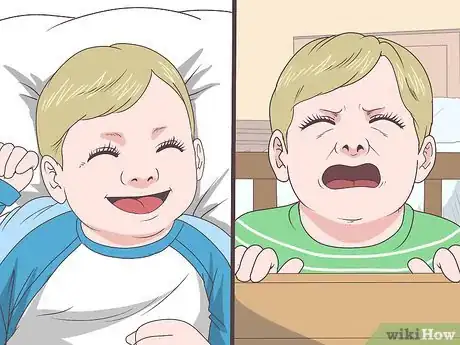
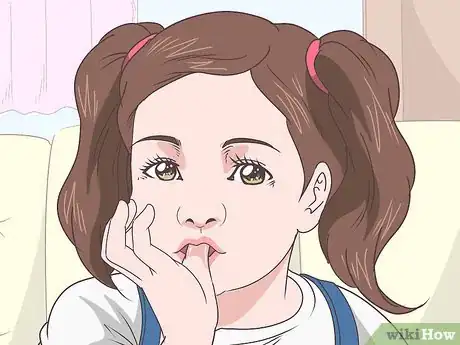
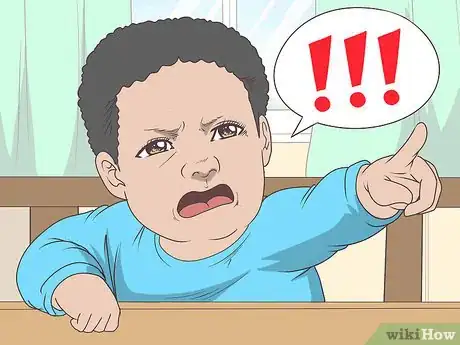
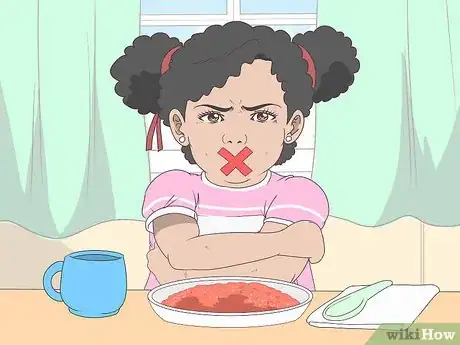
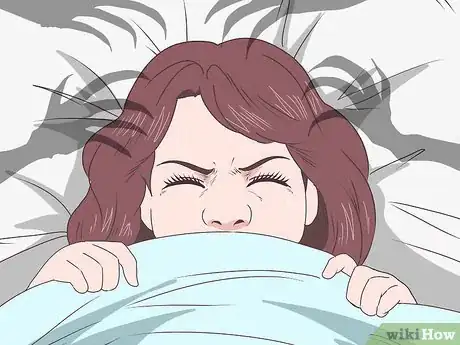
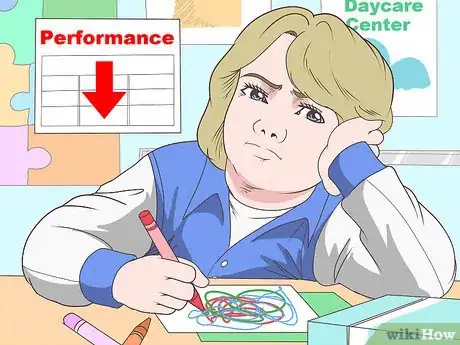
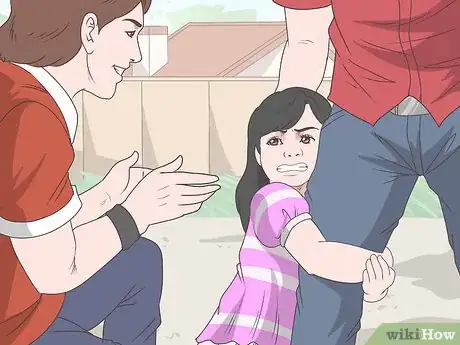
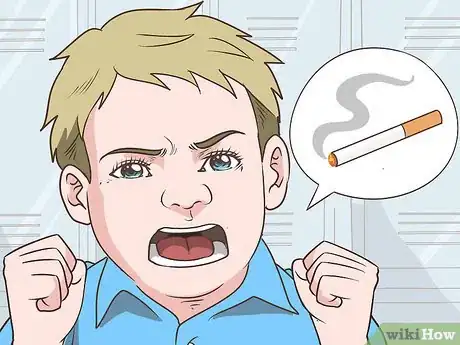
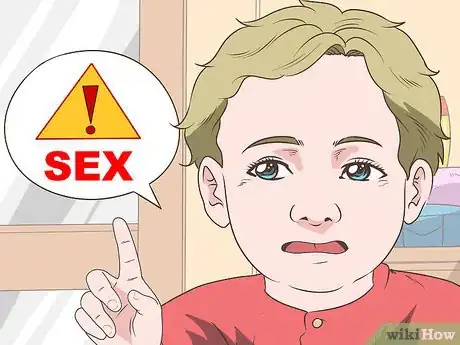
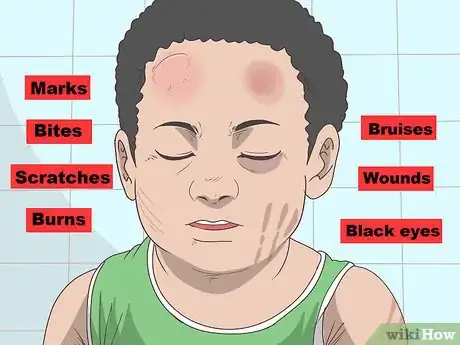
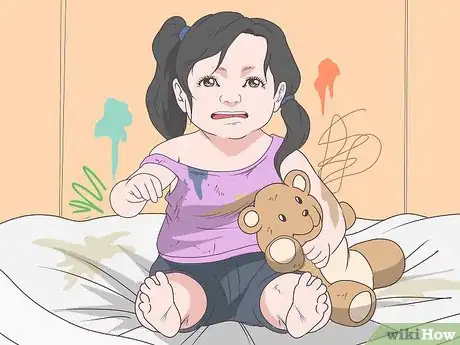
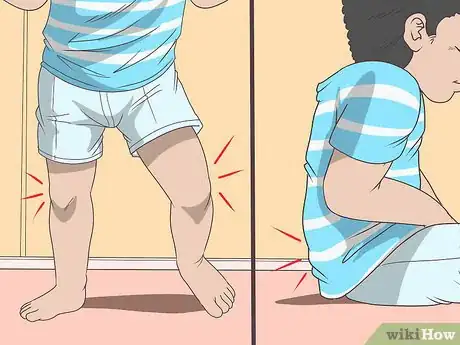
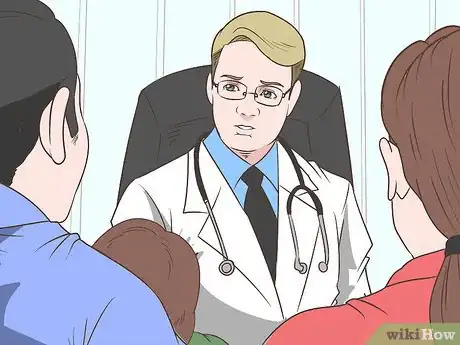
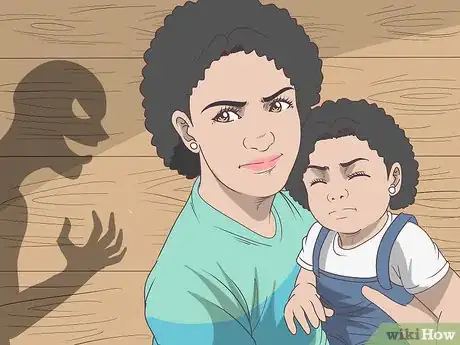


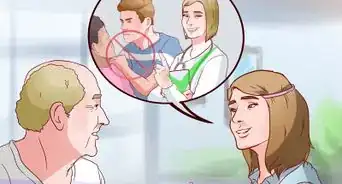
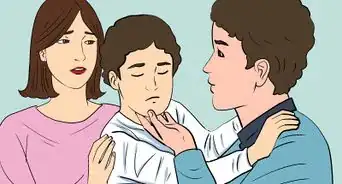




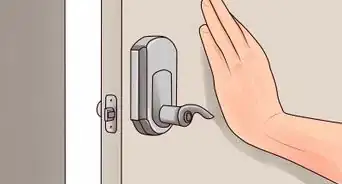
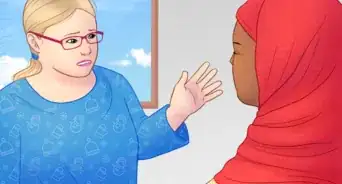
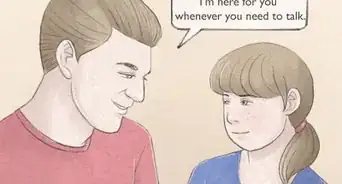
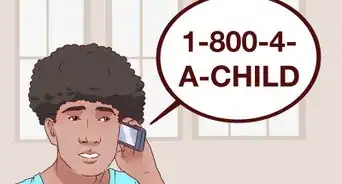
-Step-19-Version-2.webp)
